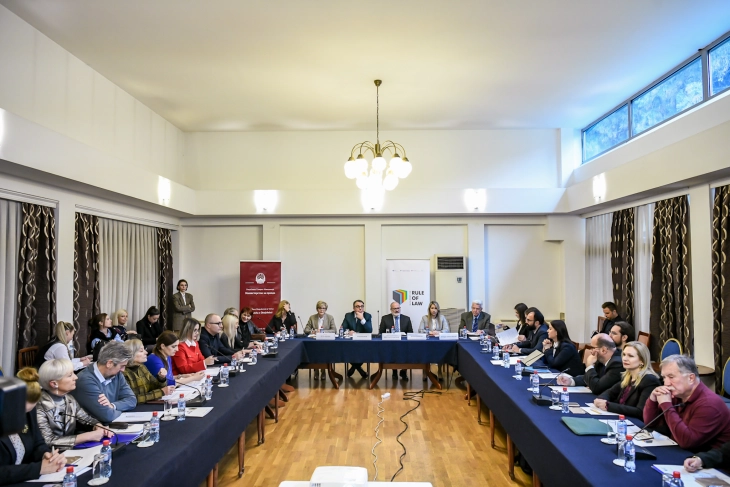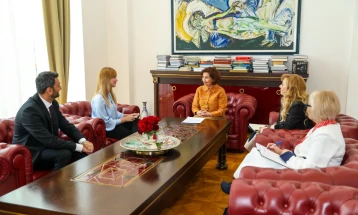First roundtable on Judicial Council reforms, final solution by end of December
- Judicial Council members to be elected by more than half of registered judges, the Parliament to set up an independent commission for election of the candidates, Council members to vote for all candidates on the list, specific deadlines for disciplinary proceedings are some of the recommendations for amendments to the Law on the Judicial Council arising from the first of several roundtables organized by the Ministry of Justice in cooperation with the EU Support for Rule of Law project on Friday.

Skopje, 15 November 2024 (MIA) - Judicial Council members to be elected by more than half of registered judges, the Parliament to set up an independent commission for election of the candidates, Council members to vote for all candidates on the list, specific deadlines for disciplinary proceedings are some of the recommendations for amendments to the Law on the Judicial Council arising from the first of several roundtables organized by the Ministry of Justice in cooperation with the EU Support for Rule of Law project on Friday.
The proposals that are part of the working document, which has been drafted by the project experts, relate to the composition and structure of the Judicial Council, election and appointment, disciplinary proceedings and transparency, and address the EU Peer Review Mission recommendations on the functioning of the Judicial Council. A comparison between the current legal framework and the proposals of the Ministry of Justice working group, led by academician Vlado Kambovski, is also carried out.
Ten out of the 20 proposals refer to the composition and structure of the Judicial Council, including the introduction of a turnout requirement. Namely, elections are considered successful if more than half of the registered judges in the specific district come out and vote, whereas the candidate who receives more than half of the votes is elected Council member. If the list includes only one candidate, then the ballot will include the 'for' and 'against' options.
Regarding the criteria that define the Parliament's election of Council members from the order of university law professors, lawyers and other distinguished jurists, the proposal notes that the current definition in the call reading "graduated jurist with at least 15-year experience in law and achievements in academic and professional field" is replaced by "candidates from the order of regular professors with at least 20-year experience from the top three ranked universities in the country and the Bar association with candidates from the order of lawyers with at least 20-year experience", put forward by the Inter-University Conference.
Another proposal is the establishment of an independent commission for election of Judicial Council members in the Parliament, comprised of seven members nominated by the President, the Association of Judges, the Bar, the Inter-University conference, NGOs, ruling and opposition parties. The commission would schedule interviews with candidates that meet the requirements and draft a rank-list to be voted by the Parliament.
The working group also proposes that a procedure is drafted for dismissal of the Council president and vice-president at the request of at least two members, with a public decision taken by at least eight votes.
On the issue of election and appointment, instead of electing the candidate who received at least eight votes without further voting for the other candidates, it is proposed that the Council members vote for all candidates on the list, with the one receiving the most votes but not less than eight being elected member. If two or more candidates receive the same number of votes, the candidate having more points on the list is considered elected.
The conclusions and recommendations from the roundtables will serve as basis for further improvement of the text of the amendments to the Law on the Judicial Council. The total of four public debates are expected to finish by the end of December, followed by a concrete solution, said the Ministry of Justice.
Photo: MIA







